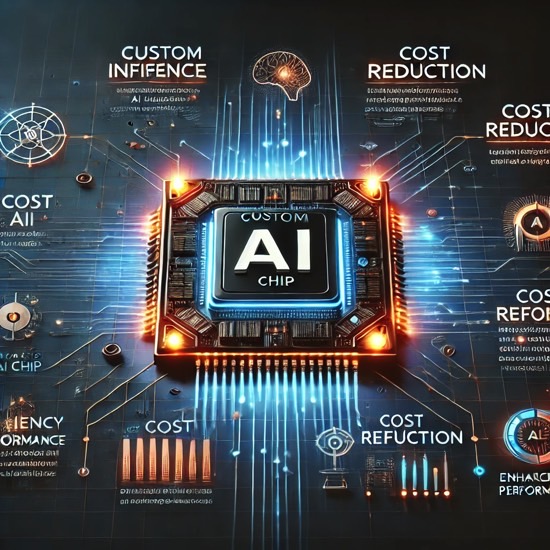OpenAI’s Custom AI Chip: A Game-Changer in AI Computing

TL;DR:
OpenAI plans to launch a custom AI chip in 2026 to tackle rising operational costs, improve performance, and reduce dependency on third-party suppliers like Nvidia. Collaborating with Broadcom and TSMC, the initiative could reshape AI computing.
Introduction:
When OpenAI speaks, the tech world listens. And its latest announcement? A custom AI chip, set to debut in 2026. Why the buzz? This development could cut costs, boost AI efficiency, and reduce reliance on external suppliers like Nvidia. Let’s dive into what this means for the future of AI.
The Drive Behind the Chip
Running state-of-the-art AI models isn’t cheap. OpenAI faces ballooning costs, with a projected $5 billion in expenses against $3.7 billion in revenue this year. Cloud services, hardware, and electricity are the primary culprits (source).
Creating a custom chip isn’t just about saving money; it’s about ensuring that OpenAI can sustainably scale its services like ChatGPT without breaking the bank.
Strategic Partnerships
Building a custom chip from scratch is no small feat. OpenAI is smartly teaming up with some heavy hitters:
- Broadcom: Leveraging expertise in advanced chip design.
- TSMC: Industry-leading chip manufacturing (source).
This collaboration ensures OpenAI has access to top-tier resources and talent.
The Chip’s Focus
OpenAI’s custom chip will prioritize AI inference tasks—the computational backbone of real-time AI operations like ChatGPT responses.
Why inference over training? Training large AI models is costly, but inference is where the real efficiency gains can be found. Optimizing this will lead to smoother and faster AI experiences (source).
The Team Behind the Tech
OpenAI isn’t tackling this alone. They’ve recruited a team of 20 engineers, many of whom previously worked on Google’s Tensor Processing Units (TPUs). This talent pool brings years of experience in building AI-specific hardware (source).
Impact on the AI Landscape
1. Cost Reduction
Custom hardware tailored to specific tasks means lower operational costs. This could make OpenAI’s services more accessible (source).
2. Performance Boost
Custom chips can deliver faster, more efficient processing for AI tasks, enhancing user experience (source).
3. Reduced Dependency
With this move, OpenAI reduces reliance on third-party suppliers like Nvidia, giving it greater control over its operations (source).
Challenges and Considerations
- Development Complexity: Designing chips requires significant resources and expertise (source).
- Industry Competition: Other tech giants like Google and Meta are also investing heavily in custom AI chips (source).
- Timeline Pressure: Hitting the 2026 release target will require flawless execution (source).
The Bigger Picture
OpenAI’s custom chip initiative aligns with a broader industry trend. Giants like Amazon, Google, and Meta are building in-house hardware to optimize AI applications. The race is on, and OpenAI is positioning itself to compete (source).
Looking Ahead
If OpenAI’s custom chip succeeds, it won’t just change the company’s fortunes—it could redefine AI infrastructure. Lower costs, faster responses, and less reliance on suppliers are just the beginning. The countdown to 2026 has begun, and this development could set the stage for AI’s next chapter.
FAQ
Q1: What is an AI inference task?
A: Inference tasks involve using an already trained AI model to make predictions or generate responses, like ChatGPT replying to your questions.
Q2: How does OpenAI’s chip differ from Nvidia’s GPUs?
A: OpenAI’s chip is tailored specifically for its AI operations, unlike Nvidia’s general-purpose GPUs.
Q3: Why is OpenAI focusing on custom hardware now?
A: Rising operational costs and the need for efficiency are driving this shift.
Conclusion
OpenAI’s journey into custom chip development isn’t just about saving money—it’s a calculated strategy to redefine AI efficiency. Whether you’re an AI enthusiast or love seeing tech progress, this is one story to keep on your radar.
💬 What do you think about OpenAI’s custom AI chip? Please share your thoughts with me!